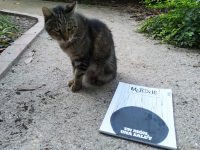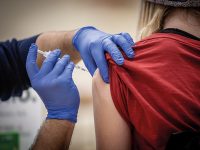
The health emergency caused by the SARS-CoV-2 coronavirus – and the disease it causes, COVID-19 – is generating tons of information, news, messages, television programs… In view of this, some associations have already provided journalists with keys to combat disinformation or malpractice. One of such recommendations was issued by the Spanish Association of Scientific Communication (AECC) in a recent statement. How to report on the coronavirus and do so in a rigorous manner is one of the challenges facing the media these days.
From Mètode, we have asked two journalists and communication experts and two scientists to give us their point of view on how the media are dealing with the new pandemic. Behind these perspectives are Gema Revuelta, director of the Centre for the Study of Science, Communication, and Society of the Pompeu Fabra University; Margarita del Val, virologist at the Spanish National Centre for Scientific Research; Ángela Bernardo, journalist at CIVIO and member of the board of directors of the Spanish Association of Scientific Communication (AECC), and Salvador Macip, PhD, literary author, and researcher at the University of Leicester.
All four agree on several points that the media should improve in their reports on the coronavirus crisis. They agree that communication should be more consistent and clear to make people understand the basic keys of the pandemic and the measures taken in regards to it. In a situation of uncertainty like the present one, journalists cannot know more than an expert, so they have to help specialists have a voice. This is not the time to communicate scientific information in a biased or interpretative manner. The emergency situation requires clear, rigorous, and coordinated information as much as possible, experts say.
Finding the right sources
Using a variety of sources is interesting to give a polyhedral view of a subject, but in the case of the coronavirus it is not recommended. Not everyone can talk about it, so experts recommend being cautious to avoid confusing the public and making them more uncertain.
However, this does not mean that the information is not to be contrasted. On the contrary, specialists from different areas should be considered. Source specialisation is vital for rigorous reporting of coronavirus. «If we have doubts about epidemiology, we have to ask an epidemiologist, not a pulmonologist», explains Angela Bernardo. This rule has not been followed in some television talk shows in recent weeks, where experts have been asked to talk about areas of health other than their own. As Bernardo explains, this does not create problems when dealing with a general and well studied issue, but when talking about a specific and still largely unknown topic such as the coronavirus crisis it is not the best thing to do. For the experts, the fact that one professional is playing the role of another on a television set is reason enough to distrust what they say.
Another factor to take into account when doing good science communication work is the use of official and independent sources. According to the scientists, following official communications from the Ministry of Health, WHO or Johns Hopkins Research Center is necessary, but it must be accompanied by information from independent sources such as experts from the different health care services and, if necessary, documentary sources as well. This combination helps to contrast information and provide more insight into the crisis. On the other hand, as the AECC says, it is interesting to leave the references in the news so that the reader can turn to them for further information.
Without clear information we cannot approach the reality around us. For experts, communicating about the coronavirus crisis is risky because it is not yet a well known topic. Salvador Macip and Margarita del Val agree that journalism must focus on convincing people and resolving their doubts. «You do not have to cram the texts with data, the media have to help readers understand what is happening through dissemination», explains Del Val. As they say, it is time for the experts to speak out and the public needs to trust them and follow their lead because without everyone’s support, containing the spread of the virus will be even more difficult.
Collective-focused communication
One of the most important things to keep in mind according to Del Val is the need to change our mindset towards «communication understood in a collective sense». According to the virologist, we need to take an epidemiological perspective on the matter. In this sense, journalism has to reflect collective movements and their effects, rather than focus on individual cases or quantitative data exclusively. According to her, it is time to be careful with everything: what we talk about, who we talk to, how we do it, what message we convey… communication professionals need to check texts before publishing them, consult data, contrast information, and control the level of sensationalism contained in what they publish, even in the pictures accompanying the news.
«That is why we need to consider whether to keep on air programs that spread sensationalist and less than rigorous information. Society needs to consider not watching them to be well informed», says Macip. The doctor explains that the audience usually filters information and chooses according to their interests, and despite the fact that the most sensationalist media have high audience figures, there is also an important part of the population that does not receive their information through them. But even so, they do not escape false information and fake news because of social networks. According to Gema Revuelta, you cannot do without social networks, but you must use them responsibly. «To combat disinformation, we have to resort to fact-checkers like Maldita.es and spread their work», she explains. She invites us to doubt all the conspiracy theories about the virus that have emerged in recent days.
Striking a balance between alarmism and excessive positivism
There is no need to be alarmist, nor to be overly positive, the AECC says in its statement. At the moment there is no vaccine or control of the pandemic, and this scenario may last longer or shorter. Faced with this situation, decision making is crucial to change the course of things. And in order to make rational decisions, we need to be as well informed as possible.
For scientists, the media have a very important role as transmitters of information at this time. Science calls for knowledge and rigour to stop the spread of the coronavirus. As the interviewees state, these are delicate moments where the only thing that will get us through is to work as closely as possible from all areas of society.





